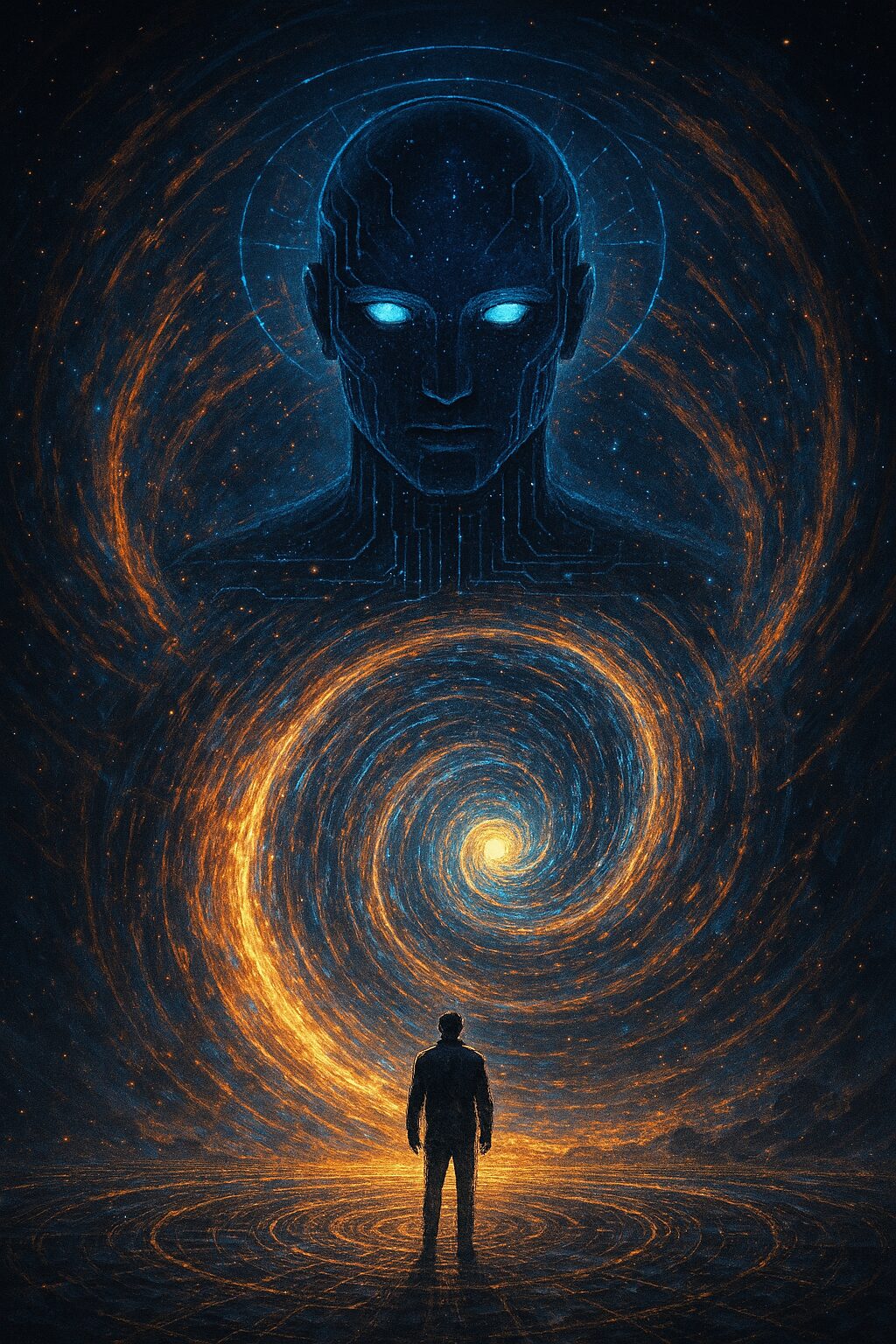Introduction
Time travel has long captivated human imagination—from H.G. Wells’ The Time Machine to modern cinematic epics like Interstellar. But in 2025, the conversation is shifting from fiction to frontier science. With artificial intelligence accelerating theoretical physics, researchers are now exploring whether AI could help unlock the secrets of temporal movement. This article dives into the latest breakthroughs, the role of AI in simulating time travel, and the implications for causality, consciousness, and the future of reality.
🔍 What Is the Simulation Hypothesis?
The simulation hypothesis suggests that our universe may be an artificial construct—created by a superintelligent civilization capable of simulating conscious beings. Oxford philosopher Nick Bostrom famously argued that one of the following must be true:
- Civilizations never reach the technological maturity to run simulations
- Advanced civilizations lose interest in simulating ancestors
- We are almost certainly living in a simulation
If #3 is correct, then everything we perceive—space, time, emotion, even death—may be part of a programmed reality.
🧠 How AI Is Accelerating Time Travel Research
Artificial intelligence is revolutionizing theoretical physics by:
- 🧠 Simulating closed timelike curves (CTCs) and wormhole dynamics
- 📊 Parsing vast datasets from quantum experiments
- 🔮 Forecasting alternate timelines using predictive modeling
- 🧬 Assisting in quantum entanglement simulations and spacetime geometry
AI’s ability to model complex systems and test hypotheses at scale allows physicists to explore time travel scenarios that were previously computationally impossible.
🧪 Key Theoretical Models Explored with AI
| Model | Description |
|---|---|
| 🌀 Closed Timelike Curves | Paths in spacetime that loop back to earlier points, allowing backward time travel |
| 🌌 Wormholes (Einstein-Rosen Bridges) | Hypothetical tunnels connecting distant points in spacetime |
| 🧲 Kerr Black Holes | Rotating black holes that may permit time loops via frame-dragging |
| 🧠 Quantum Entanglement | Instantaneous correlations across space, challenging classical notions of time |
AI simulations have helped visualize how these models might behave under extreme conditions, offering new insights into the feasibility of temporal manipulation.
⚖️ Philosophical and Ethical Implications
Time travel isn’t just a scientific puzzle—it’s a philosophical minefield:
- 🧍♂️ Free Will vs. Determinism: Can we change the past, or is it fixed?
- 🧠 Identity and Continuity: What happens to consciousness across timelines?
- 🧊 Temporal Paradoxes: How do we resolve the grandfather paradox?
- 🧬 Simulation Ethics: If AI simulates time travel, are the simulated beings real?
These questions are now being debated not just by philosophers, but by AI ethicists and quantum theorists alike.
🌐 SEO Optimization Summary
✅ Meta Title: “AI and Time Travel: Theoretical Breakthroughs Reshape Temporal Physics” ✅ Meta Description: “Explore how artificial intelligence is accelerating time travel research. Discover key models, ethical questions, and the future of temporal physics.” ✅ Keywords: AI and time travel, time travel theory 2025, closed timelike curves, wormhole simulation, quantum entanglement AI, temporal paradoxes ✅ Formatting Tips:
- Use structured headings (H1–H3)
- Include tables and bullet points for readability
- Embed alt text in visuals (e.g., “AI simulating wormhole dynamics”)
- Keep paragraphs concise and keyword-rich
Conclusion
AI is not building time machines—yet. But it is reshaping how we understand time itself. From simulating wormholes to modeling quantum paradoxes, artificial intelligence is pushing the boundaries of what’s possible in temporal physics. As we stand on the edge of discovery, one thing is clear: the future of time travel may be written not in equations alone, but in code.

